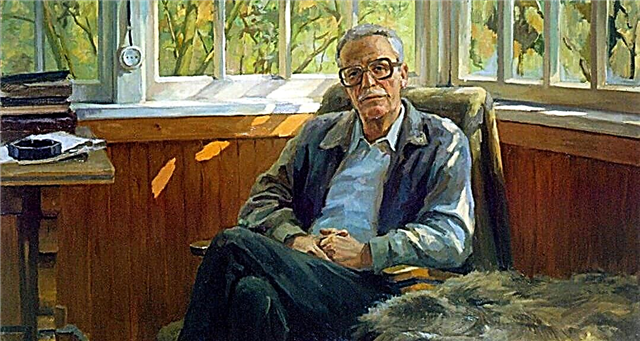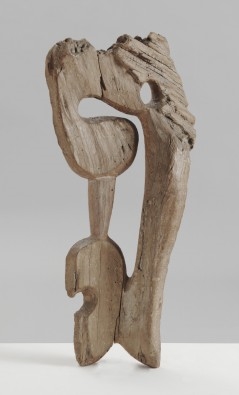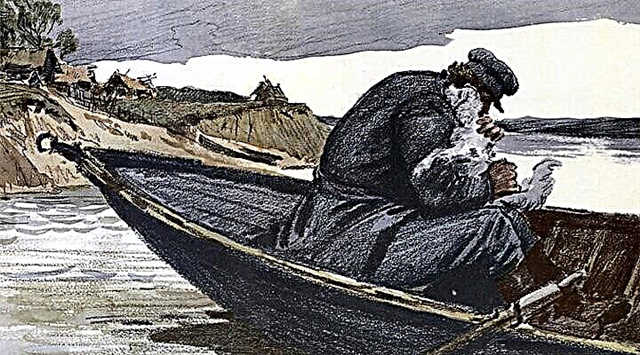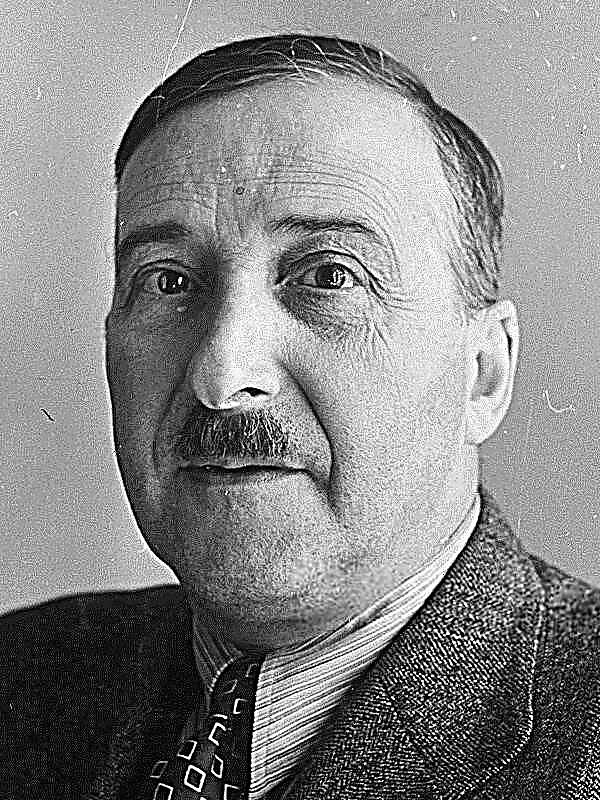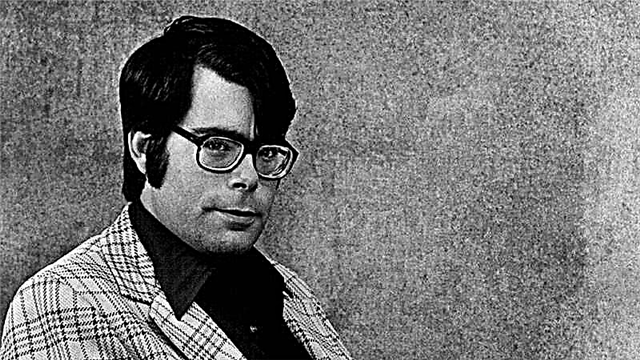Actors come to the theater for a rehearsal. The prime minister is unhappy that he needs to put on a cook hat during the play. The director exclaims in his hearts: “... what do you want from me if France has long ceased to supply us with good comedies and we are forced to stage comedies of this Pirandello, which is understood - you need to eat a pound of salt and who, as if on purpose, does everything for the actors to and the critics and the audience spat? ” Suddenly, a theater doorman appears in the hall, followed by six characters, led by the Father, who explains that they came to the theater in search of the author. They offer the Director of the theater to become his new play. Life is full of such absurdities that do not need believability, because they are the truth, and creating the illusion of truth, as is customary in the theater, is pure madness. The author gave life to the characters, and then he thought it over or could not elevate them to the rank of art, but they want to live, they themselves are drama and are burned out by the desire to present it as the passions raging in them tell them.
Interrupting each other, the characters are trying to explain what is the matter. Father married Mother, but soon began to notice that she was partial to his secretary. He gave both of them money so that they could leave his house and live together. He sent his son, who was two years old at that time, to the village, where he hired him a nurse. But the Father did not lose sight of his wife's new family until she left the city. The Mother gave birth to three more children: Stepdaughter, Boy and Girl, whom the legitimate Son despises for being illegal. After the death of her partner, Mother and children returned to their hometown and, in order to earn at least some money, began to sew. But it turned out that the mistress of the fashion store, Madame Pache, gave her orders only in order to force Stepdaughter to engage in prostitution: she said that Mother had ruined the fabric and deducted from her salary, so Stepdaughter secretly traded herself from her mother to cover the deductions. The stepdaughter blames the Son and the Father for everything; they are justified. Mother suffers and wants to reconcile all. Father says that in each of the participants in the drama is not one, but many appearances, each has a hidden ability to be one with one, with the other, talking about the integrity of the person - nonsense. The son, whom the Stepdaughter considers guilty of everything, says that he is a character dramatically "unrealized", and asks to leave him alone. The characters quarrel, and the Director believes that only the author can restore order. He is ready to advise them to turn to a playwright, but Father invites the Director to become an author himself - it's all so simple, the characters are already here, right in front of him.
The director agrees, and the stage sets are set up depicting a room in Madame Pache's establishment. The director invites the characters to rehearse in order to show the actors how to play. But the characters themselves want to speak to the public, such; what they are. The director explains to them that this is impossible, the actors will play them on stage: stepdaughter - Premiere, Father - Premier
On the stage there is a new decoration: a corner of the garden with a small pool. Actors are sitting on one side of the stage, and characters on the other. The director announces the start of the second action. The stepdaughter says that the whole family, contrary to the wishes of the Son, moved to the house of the Father. Mother explains that she tried with all her might to reconcile her Stepdaughter with her Son, but to no avail. Father argues with the Director about illusion and reality. The skill of the actors is to create the illusion of reality, while the characters have their own, different reality, the character always has his own life, marked by characteristic, inherent features, he is more real than an ordinary person, especially an actor who often can be “ by nobody. ” The reality of people is changing, and they themselves are changing, while the reality of the characters does not change and they themselves are not changing. When the character was born, he immediately receives independence, even from the author, and sometimes he happens to take on a meaning that the author did not even dream of! Father complains that the author’s imagination brought them into the world, and then refused them a place under the sun - so they are trying to fend for themselves. Many times they asked the author to take up a pen, but to no avail, and they went to the theater themselves. The director continues to dispose of the scenery. The stepdaughter is very disturbed by the Son. He is ready to leave the stage and is trying to leave, but he doesn’t succeed, as if some mysterious force is holding him on stage. Seeing this, the stepdaughter begins to laugh uncontrollably. The son is forced to stay, but he does not want to take part in the action. A girl plays by the pool. The boy is hiding behind the trees, clutching a revolver in his hand. Mother enters the room of the Son, wants to talk with him, but he does not want to listen to her. The Father tries to make him listen to the Mother, but the Son resists, a fight breaks out between the Son and the Father, the Mother tries to separate them, in the end the Son brings the Father to the floor. The son does not want to be dishonored in public. He says that by refusing to play, he just does the will of someone who did not want to bring them onto the stage. The Director asks the Son to simply tell him personally what happened.The son says that, passing through the garden, he saw the Girl in the pool, rushed to her, but suddenly stopped, seeing the Boy, who with crazy eyes looked at the drowned sister. When the Son reaches this place in his story, a shot is fired from behind the trees where the Boy was hiding. The boy is carried offstage.
Actors return to the scene. Some say that the boy really died, others are convinced that this is only a game. Father shouts: “What a game! Reality itself, gentlemen, reality itself! ” The director loses his temper, sends everyone to hell and asks for light.
The stage and the hall are lit up with bright light. The director is annoyed: he wasted all day in vain. It's too late to start a rehearsal. Actors disperse until the evening. The director instructs the illuminator to turn off the light. The theater plunges into darkness, after which, in the depths of the stage, as if by the oversight of the illuminator, a green backlight lights up. Huge shadows of characters appear, except for Boy and Girl. At the sight of their Director in horror runs off the stage. Only characters remain on stage.





